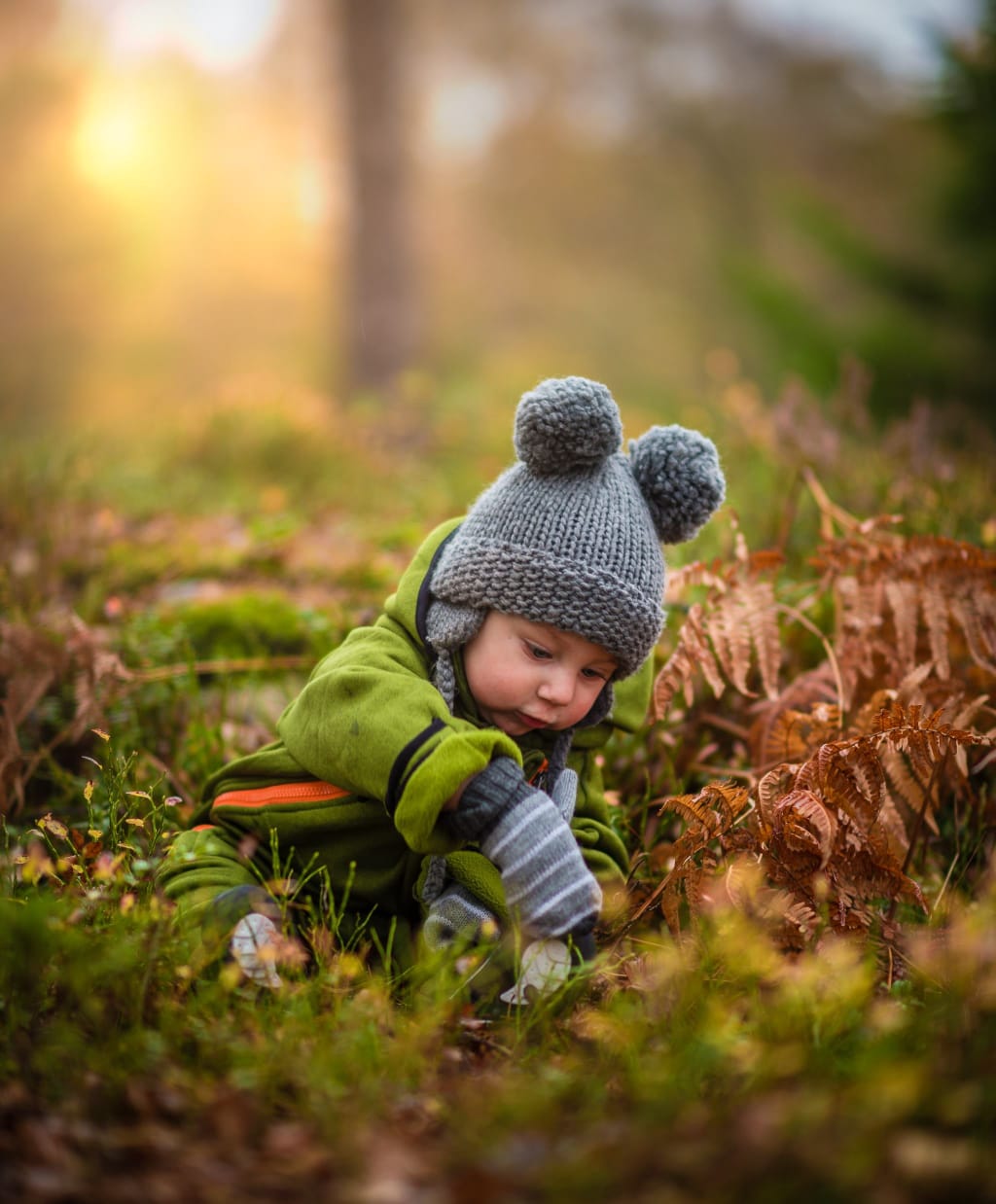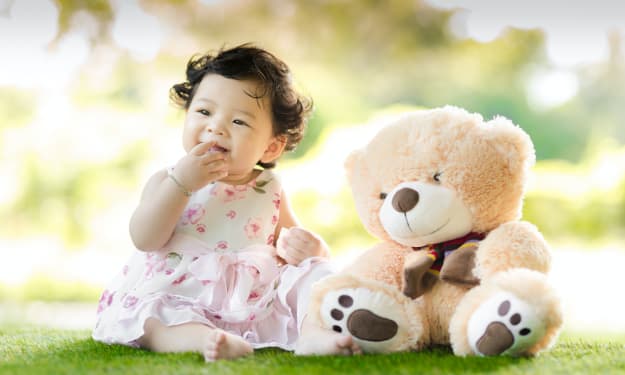10 Surprising Ways Babies Learn and Grow: Unlocking the Secrets of Early Childhood Development.
All things for our baby

Babies are fascinating creatures that seem to learn and grow at an incredibly rapid pace. From their first moments of life, they are exploring the world around them, taking in new information and making sense of their surroundings. It's no wonder that parents and caregivers are often amazed at the incredible developments they witness in their little ones. In this essay, we will explore 10 surprising ways that babies learn and grow, revealing some of the secrets behind early childhood development.
Learning Through Touch:
Babies learn through their senses, and touch is one of the most important. From the moment they are born, they are able to sense the world around them through their skin. Research has shown that touch is essential for healthy emotional and physical development in babies, helping them to regulate their emotions and build strong relationships with their caregivers.
Mimicking Behaviors:
Babies are natural imitators, and they learn a great deal by watching and mimicking the behaviors of those around them. This is why parents and caregivers play such an important role in shaping a child's development. By modeling positive behaviors and interactions, adults can help babies learn to communicate, cooperate, and develop empathy.
Sleeping and Dreaming:
Babies spend a significant portion of their early months sleeping, and this sleep is crucial for their development. During sleep, babies process the information they've learned throughout the day, consolidating memories and building new neural connections. This is why it's important for parents to prioritize healthy sleep habits and establish consistent bedtime routines.
(CLICK HERE FOR THE BEST BABY SLEEP PRODUCT)
Babies are naturally curious and love to explore the world around them. They learn through trial and error, experimenting with different behaviors and actions to see what works and what doesn't. By allowing babies to explore their environment in a safe and supervised way, parents and caregivers can help them build confidence and develop important problem-solving skills.
Developing Social Skills:
Even at a very young age, babies are building the foundations for social skills that will serve them throughout their lives. Through interactions with parents and caregivers, they learn how to communicate, cooperate, and form attachments with others. By fostering positive social interactions and modeling healthy relationships, adults can help babies develop these essential skills.
Language Acquisition:
Babies are like sponges when it comes to language acquisition, and they begin learning to speak and understand their native language from the very first days of life. Research has shown that babies are able to distinguish between different sounds and can even recognize the cadence and rhythm of their mother's voice.
(CLİCK HERE FOR THE BEST LEARN LANGUAGE BABY PRODUCT)
Play is an essential part of early childhood development, and babies learn a great deal through play. Through interactive play with parents and caregivers, babies develop important motor skills, learn to regulate their emotions, and build their imaginations. Play also helps babies learn to problem-solve and think creatively.
(CLICK HERE FOR THE BEST BABY GAME PRODUCT)
Bonding with Caregivers:
Bonding with caregivers is essential for healthy emotional development in babies. When babies feel secure and loved, they are better able to regulate their emotions, form healthy relationships with others, and develop a positive sense of self. Caregivers can help build this bond by responding to their baby's needs promptly and consistently, providing comfort and reassurance when needed.
Emotion Regulation:
Babies experience a wide range of emotions from the very beginning of life, and learning to regulate these emotions is an important part of early childhood development. By providing a safe and supportive environment, caregivers can help babies learn to identify and express their emotions in healthy ways.
Building Motor Skills:
From rolling over to crawling to walking, babies go through a series of important motor milestones in their first year of life. By providing opportunities for movement and exploration, caregivers can help babies build strong muscles and develop important motor skills.
About the Creator
Biomarketin
EVERYTHING IS FOR YOU.
I WILL SHARE INFORMATIVE TOPICS HERE JUST FOLLOW






Comments
There are no comments for this story
Be the first to respond and start the conversation.